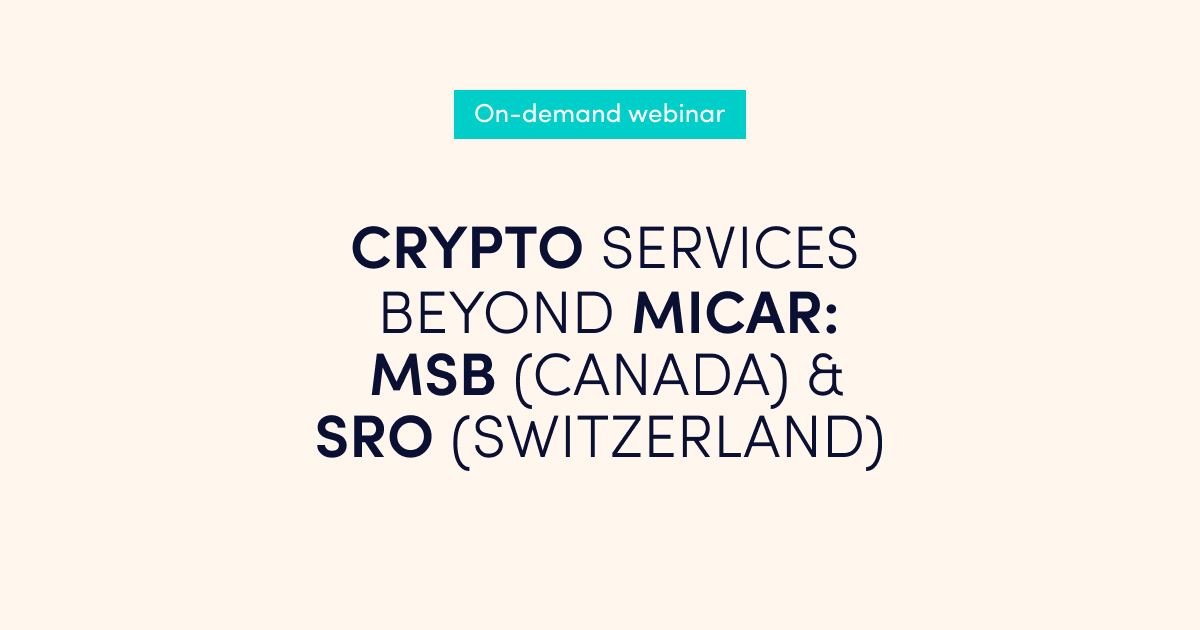Open Banking is a banking initiative that was developed to improve dynamic market competition, stimulate innovation, and give end-users better and more convenient services. If we look at Open Banking from the perspective of the PSD2 directive, which is a legislative framework for Open Banking, then Open Banking is a regulatory framework that requires banks to exchange data with third-party service providers upon the consent of end-users. In other words, this allows fintech companies or other third-party services to access the financial information of the customer and provide financial transactions on behalf of the customer. The more participants in this system are, the greater competition is. It means that the variety and quality of services will increase, prices – decrease, and end-users will benefit from this change. But let’s analyse which opportunities will Open banking bring for market participants. Who will win and why? Who could lose and why so?
Banks
It might seem that Open Banking won’t bring strategic advantages or new opportunities for banks, but only risks. With new players like fintech companies and start-ups entering the market, consumers will have more options to choose from. It will undoubtedly affect the demand for banking products. Banks will have to improve their technologies and make efforts to ensure that their services are competitive in terms of price and customer experience. A little fear for the future of banks is obvious – they are unlikely to get down to discussions about the accessibility of Open API. Nevertheless, it is vital that banks evaluate some of the benefits that the implementation of Open Banking may bring:
• Firstly, by opening their APIs, banks can easily connect to the APIs of other service providers in the market and expand their offerings.
• Banks will be able to offer marketplaces of different products and services. One good example is Starling Bank, which provides its customers access to the “services platform” integrated with their account. Currently, the offer includes Habito mortgage broker, PensionBee pension plans, Kasko travel insurance (AXA), Wealthify savings accounts, and many other services.
• Banks can organize partnership alliances, inviting customers to view the relevant information about their accounts in other partner banks through one interface. For example, Santander, HSBS, Monzo, and several other banks offer to customers to view and manage their online savings, mortgages, loans, and cards stored in any other bank from this list. Also, the application groups the total expenses of customers into 30 categories, including grocery shopping and utilities.
• By connecting to other Open APIs, banks will be able to receive and analyse additional information about the behaviour of their customers and offer them more personalized and relevant services.
• Digitalisation of banking services, as well as the necessity to proceed with other developments to implement the Open API, will only positively impact a new evolution in banking. Banks, having received some impetus from digitalisation, will more likely improve or automate their other services and adapt business processes to the changing market needs. Ultimately, the expansion of sales channels will lead to lower costs, for example, for staff, and higher revenues.
But opportunities come together with risks:
• The first risk is related to doing business in general. Newmarket players will affect the operations of banks because they are more technologically advanced – digital and committed to adapt to customer needs with higher speed, better UI / UX, and more competitive pricing. It may result in losing customers for banks if they fail to improve their services.
• Although identity verification and fraud prevention are essential components of both the Open Banking initiative itself and the Open API, there are risks associated with the loss or theft of personal data, data protection violations, money laundering, and terrorist financing. Banks will strive to become fully digital, which will, in turn, create a fertile environment for fraudulent activities.
• Access to customer banking data, such as transactions and balance, has always been on any hacker’s wish list. The Open API provides access to customer data stored within the infrastructure and may pose a severe risk to cybersecurity. No matter how banks strive to secure their systems and APIs, data thieves can always find a weak spot. It means that some customer data will be openly available to other parties. And it is not only about compliance with GDPR and PSD2 and scenarios of customers claiming compensation from banks. In addition to financial losses, the reputation of banks may also suffer. As a result, it may directly affect the number of customers and partners who are willing to work with this particular bank.
• The risk of fraudulent transactions is another concern. There is a danger that those who will use the Open API will be able to make unauthorized payments from the bank’s customers. In this case, the bank may incur financial losses for every transaction made.
Fintech companies and other start-ups
Obviously, fintech companies and other start-ups are the biggest winners from Open Banking. This initiative works as a driving force for further developments and improving their business models. For them, this will open the door to the world of new opportunities. So, how fintech companies and other start-ups can benefit:
• They will be able to create new products, for example, mobile applications where bank customers can plan their finances, manage loans, invest money, and receive financial advice in a chat. Most traditional banks do not offer such services in real-time, which means that fintechs and start-ups will successfully conquer this niche.
• They will be able to create marketplaces for different services, thereby offering customers to either choose only the best or get access to the entire market through one application.
Risks:
• If the number of players in the market with similar offers will rise, then it is likely that some fintech companies can experience losses.
• Risks associated with data loss, identity theft, data protection violations, money laundering, and terrorist financing. Fintech companies can be both a source and a “carrier” of these violations. If new applications that fintech companies develop and the systems on which they work aren’t secure enough, then the attackers will very likely use these applications for their “fraudsters needs”. It has to be noted that there are no specific security requirements for fintech companies` systems. Therefore, operations through Open APIs may create additional risks for the system as a whole.
BigTechs
So far, no BigTech companies have been able to offer its customers a complete financial ecosystem with settlement accounts, deposits, and other financial services. Open Banking will be able to provide new opportunities for GAFA companies (Google, Apple, Facebook, and Amazon). If these companies take advantage of Open Banking, this will not only improve customer experience but also change the rules of the banking industry as a whole. But whether they will join the club of Open Banking, it is still a big question, because all of them are on the way to their financial ecosystems.
Risks:
The main risk for BigTechs is associated with politics. Open Banking is a European directive that operates in Europe, and the activities of the Big Four in this region will be perceived as a threat to free competition in the financial market. What will it cause? These might be additional taxes or new mechanisms to regulate operations of the Big Four in Europe. Another risk, we can note is data security, which is inherent for all market players.
End-users
To begin with, end users either don’t know anything about this initiative or feel hesitant. Some are even against Open Banking because they don’t see any benefit. Unfortunately, governments or regulators did not carry out any large-scale campaigns to increase awareness about this initiative. And it is no surprise that Open Banking is associated with interference in their personal life and leakage of their financial information. Nevertheless, let’s look at how Open Banking can improve the quality of services for consumers:
• Relevant and more personalized services. End-users can benefit from more personalized services that are based on the analysis of big data related to their financial habits and behaviour.
• More convenient operations with financial tools that provide user-friendly interfaces and various analytical data to manage finances better. Consumers won’t have to open several applications – but just one that will include their frequently used services.
• More convenient option to search for personalised offers and services. Consumers won’t spend their time searching for services and special offers. A list of services, based on their analytical data, will be available right away.
• Increased speed and efficiency of everyday activities. Paying for utilities and making other recurring payments from one application and through one authorization step, a quick search for any necessary functionality, convenient and user-friendly interfaces. Imagine consumers being able to do all of this and more. Open Banking will definitely speed up all financial transactions.
• Lower cost of services due to higher competition.
Risks:
The risks include the loss or theft of personal data and data protection breaches. We know that customers give consent to other financial institutions or financial service providers to access their data. But despite it, third parties may use this kind of access not only for certain financial operations but for exploitative purposes to carry out fraudulent activities.
Impact on competition and collaboration
Open Banking was introduced to increase competition and make the market more flexible. It is expected that the entire industry will benefit from Open Banking. But this will happen later when all of them – banks, fintechs and start-ups – will find their niche. Banks may “suffer” the most in the short term. They will need to reconsider their strategies once fintechs take their market share by directly competing and providing more affordable, faster, and personalized services. When fintech companies have access to customer data, they will offer something more compelling. Therefore, we assume that soon, most banks will focus on provision services to institutional clients, such as fintech companies and start-ups, instead of end-users. But, despite all of that, such cooperation between banks and fintechs will help banks to upgrade their systems and improve customer experience. However, the question is whether banks are ready to cooperate with fintechs. If BigTechs or the so-called GAFA enter the Open Banking market, then most likely, they will be the main competitors for all other players. With technological capabilities, access to the global market, and consumer trust and confidence, they will surely become market leaders.
Final thoughts:
So, let’s finalise what we have discussed. Open Banking is the trigger that will change the financial service industry. It seems that new market participants will be able to offer more affordable and personalized services. As a result, the competitive landscape will become far more complex and create obstacles for traditional banks, forcing them to innovate to retain and attract customers. Whatever happens, end-users will win through far greater choice in the marketplace of financial services.
Advapay is a technology company providing the Digital Core Banking platform to empower fintech clients or digital banks to start their businesses and accelerate digital transformation. The platform delivers all essential functionalities, a front-to-back system and a set of tools to customise and bring new integrations. With Advapay, potential and existing customers can connect either to the cloud-based SaaS or on-premise software. Besides the technical infrastructure, the company provides business advisory and fintech licensing services. Interested to learn more, please drop us a message.








